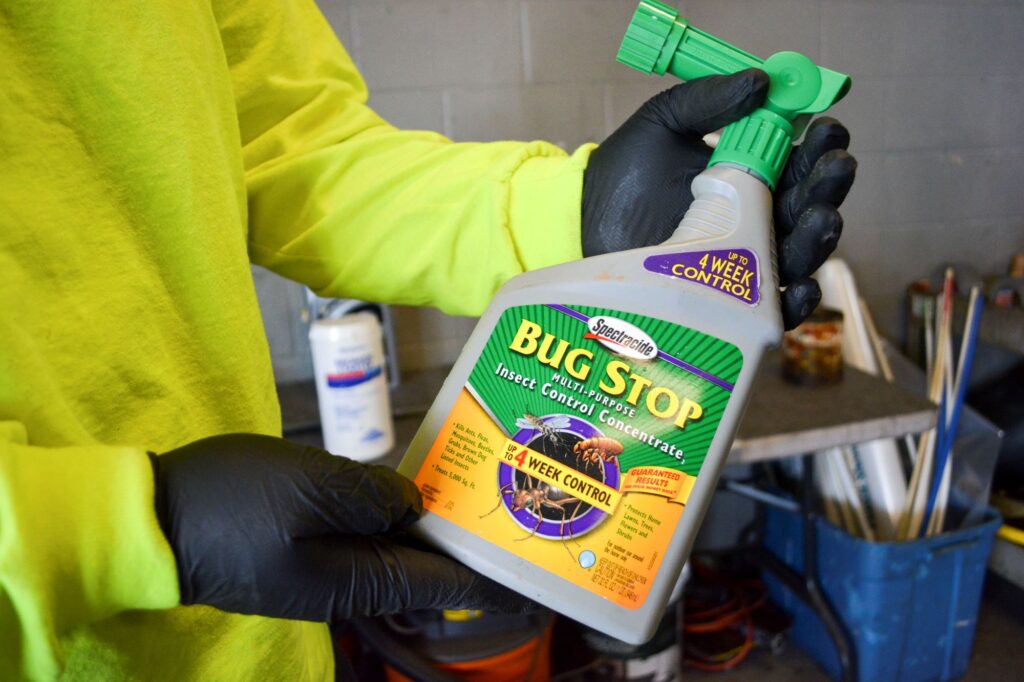Gardening is a great hobby, bringing color to your home, outdoor living spaces, and even fruits and vegetables to the table! But like with all hobbies, you’ll accumulate your fair share of gardening products for everything from preparing the soil to managing the weeds. After a few years, you can build up quite a collection of hazardous gardening products, so today we’re going to talk about how to handle, store, and safely dispose of gardening chemicals.
Most Common Gardening Chemicals
You can build up a ton of gardening tools, products, and treatments for gardens, trees, lawns, and more, even over the span of just a few years. Today, we’re going to focus on two broad categories of gardening chemicals that have the most common hazards: pesticides & herbicides and biosolid & chemical fertilizers.
Pesticides & Herbicides
These chemicals designed to kill insects and weeds are often unsurprisingly hazardous to both people and the environment. Special care should be practiced using, handling, and storing them, with the specifics for each usually written on the labels. Most are unsafe to dispose of in the trash or down the sink due to their impact on the ecosystem. Moreover, if these chemicals are in aerosol spray cans, they pose additional risks of injury if stored improperly or compacted.
For more information, check out our blog, Safe Disposal of Herbicides and Pesticides, and our Fact Sheets page!
Biosolid & Chemical Fertilizers
Home garden and lawn fertilizers come in three major forms: organic fertilizers made primarily of recycled yard and agriculture waste; chemical fertilizers made of artificially produced nitrogen, phosphorus, and potassium; and biosolid fertilizers made of treated sewage. Of these three, biosolid and especially chemical fertilizers cannot be disposed of in the trash or down the drain due to the impact they have on the environment, such as algae blooms.
For more information, check out our blog, Why Fertilizer is a Hazardous Household Product, and our What We Accept page!
Another thing to mention is to watch the overuse of both pesticides and fertilizers, especially in conjunction with lawn care. Fertilizer and pesticide/herbicide run-off can cause problems in your local environment and storm drains.
Gardening Chemicals Disposal
If you have gardening chemicals that you don’t need anymore, there are several options for disposal. First, if your products are not expired and safe to use, see about asking neighbors and friends if they might be able to use them. You can also contact your local garden supply store to see if they accept unused fertilizer for disposal. If neither of those options looks promising, or your products are unsafe for reuse, it’s time to find a household hazardous collection center that accepts these gardening chemicals.
If you’re looking for an easy solution, check out NEDT’s Household Hazardous Products Collection Centers! We can help with fertilizers and other gardening products like pesticides, along with a wide array of other household hazardous waste. To learn more, reach out to us today or schedule a pick-up!



Leave a Reply